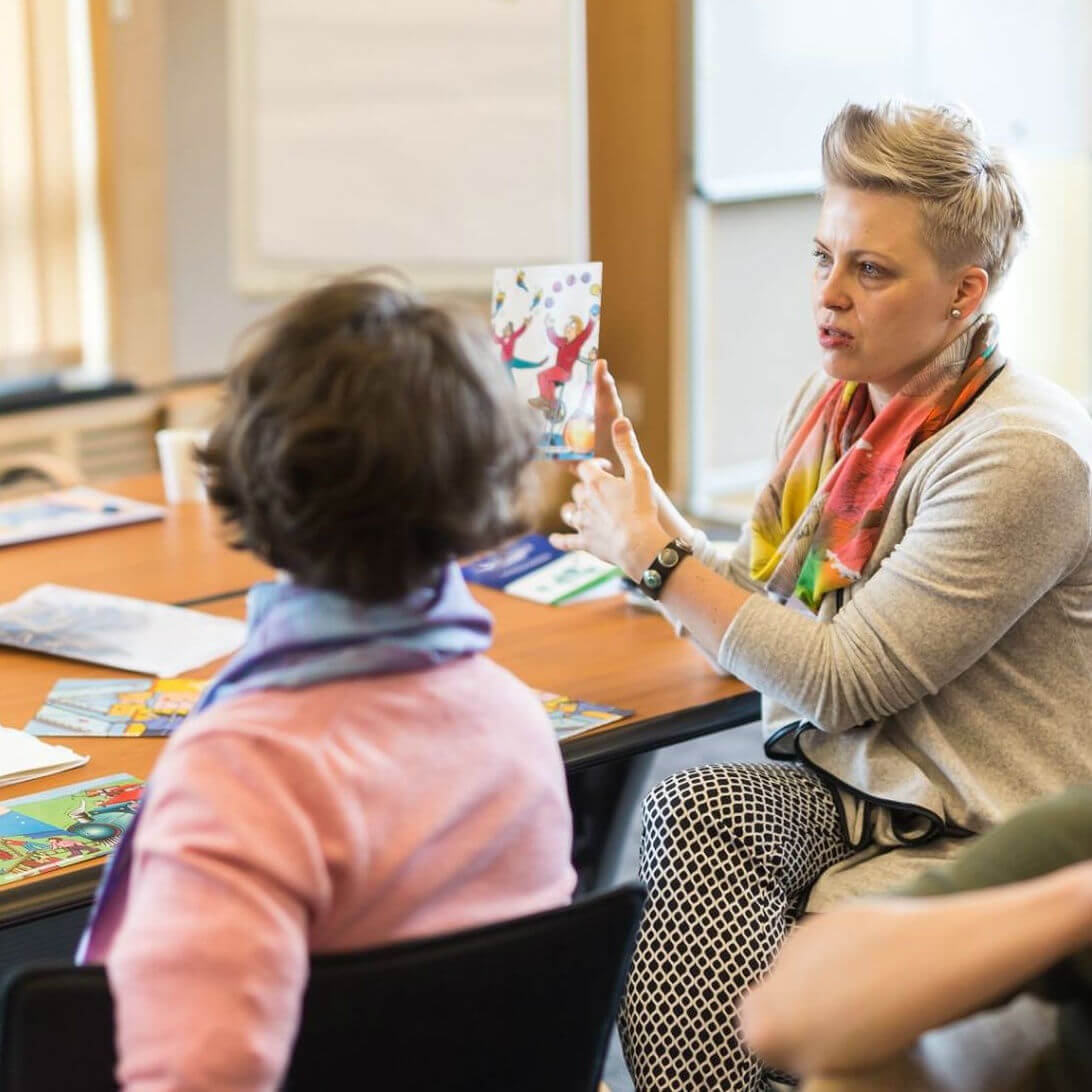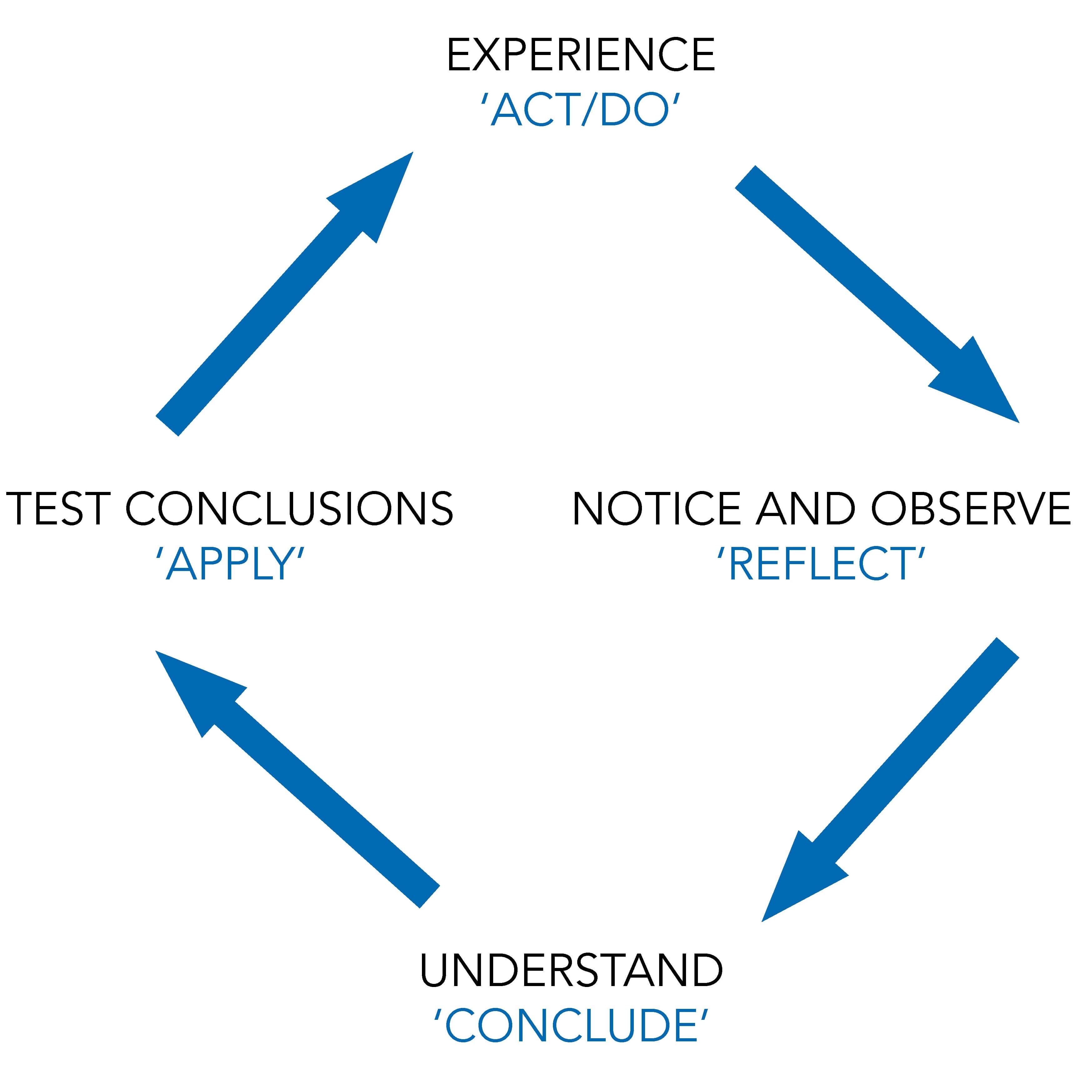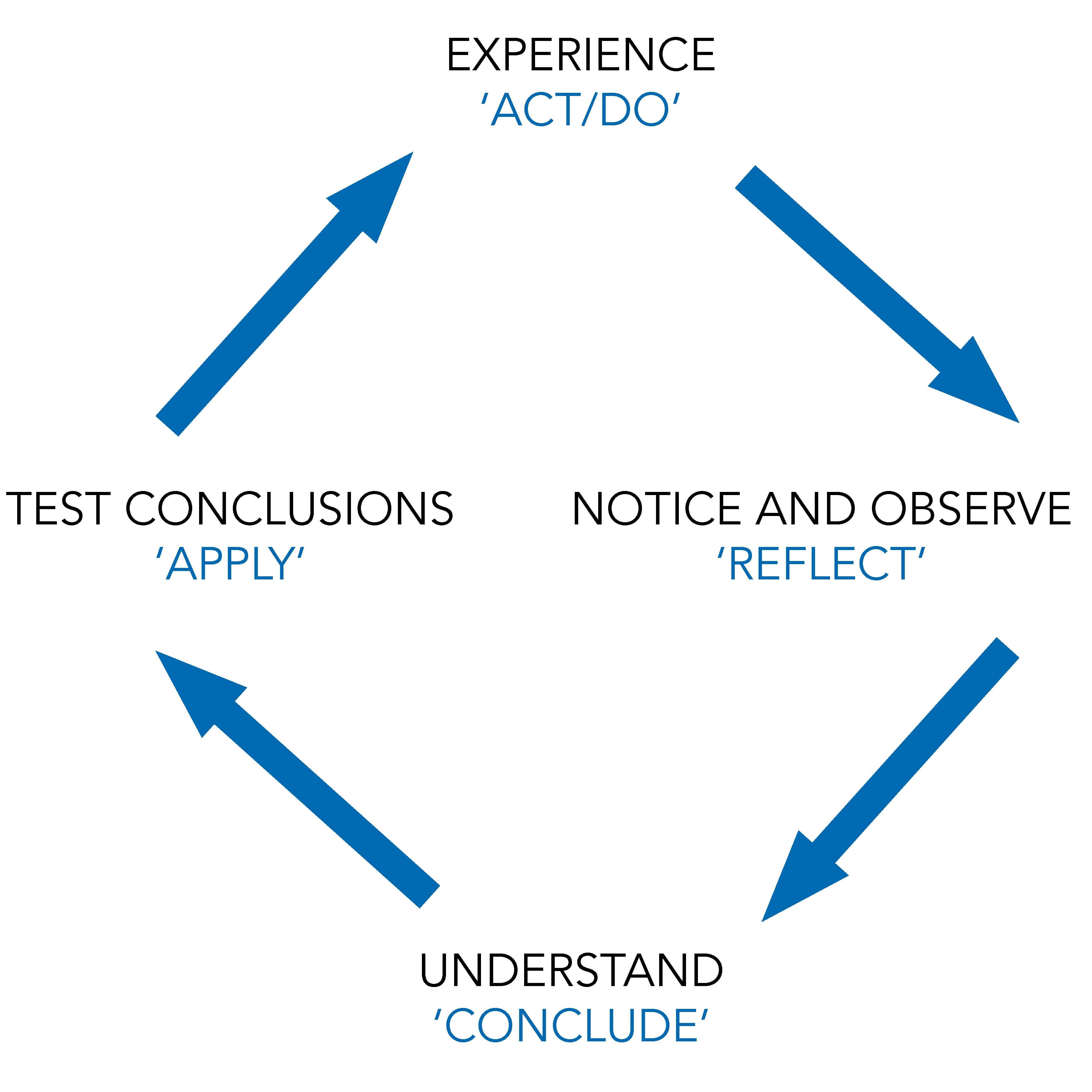My friend and colleague Graham Cook is heading to Florida later this month where he'll be delivering a session at Training Magazine's 'Training 2024' conference and exhibition. His session is titled 'How to Design Behavioral Change Using Experiential Learning Activities'. I'm not going to be alongside him for this conference but that doesn't mean I'm not invested in his input and the reception it receives. I've been thinking about why people might choose to attend the session, and why some people might choose not to be there. In this blog I'd like to share some of my thoughts around the assumptions about experiential learning that lead people to the belief that it's something they might value, or that it's something they outright reject.
I've been representing RSVP Design at training industry conferences and trade shows since we started the company 20 years ago, and I had a similar amount of time doing the same with organisations I've worked for previously. I've got a mountain of stories about encounters at these shows - the 'good, bad and downright ugly' conversations that fill the time on the train or plane home once we've packed up the booth. I have to tell you that there have been more of the good conversations in the past 5 years, less of the others. People are better informed about experiential learning, they understand and are more receptive to what it can offer, they are beginning to use the approach extensively in their programming; our conversations are starting from a very different baseline of understanding. Having said this there are still some pervasive assumptions that cause people to walk right by our booth or our sessions - and that’s hard to see when these assumptions are blocking what experiential learning could offer them by delivering performance improvements.
Let's take a look at some of the more common assumptions about experiential learning.
1. "It's the stuff that happens outdoors”.
Yeah, that's where it started and there's still a lot of it still happens when committed organisations take groups outdoors to exploit the potential of natural environments as learning environments. But experiential learning is a methodology which can be delivered in pretty much any environment where a group of individuals can be gathered to share a structured learning experience - outdoors, indoors, via a screen - it's not the setting it's the learning approach that makes it experiential.
2. "It's just games”.
Yeah, we like to play games, they're a convenient vehicle to get groups engaged in their own learning, but games are just one type of content. We routinely design and deliver introduction activities, outcome-focused icebreakers, reviews and even assessment activities that operate along experiential learning principles. As I said in point 1, it's the approach to learning that makes it experiential, not the content. So when I hear the assumption that the "games" are the experiential bit that needs to be framed by more conventional, didactic approaches to make it effective please forgive me if I come back with some scepticism and even the accusation of 'poor learning design'.
3. "It's hard to structure the sessions and hard to timetable".
There's absolutely no reason why experiential learning-based sessions should be any harder to structure and timetable than any other learning approach. As with every well-planned session the key is to be constantly mindful of the desired learning outcomes and basing every decision about the session on these outcomes. If a facilitator works with this in mind, they are making value decisions before and during the session, the most important of which is likely to be "Where's the most important learning coming from?". Very often this will be the debrief / review so assigning too little time to this element prevents the available learning from being realised, or overruns on the time allowed. David Kolb's experiential learning cycle, (still the most useful tool for understanding structured experiential learning) is a 4-stage process, far too many people either drop stages or undervalue them in terms of available learning. Take a look at Kolb's invaluable theory and ask whether they are appropriately represented in your design and timetable.
4. "It's unpredictable”.
True - at the heart of experiential learning is human behaviour, and there's always a measure of unpredictability in human behaviour. However, this shouldn't make the session you deliver unpredictable if, as I said in point 3, you are constantly aware of the desired learning outcomes. You may need to be flexible, you WILL need to be flexible, but if you are continually monitoring what's happening in front of you and asking yourself "Is what's happening here addressing the stated learning outcomes?" then the destination is defined, even if the route to get there will vary.
5. "You have to have top-line facilitation skills".
There's no doubt that the more skills and experience as a facilitator you build up, the more learning you can extract from an experiential learning session, especially something complex like a behavioural simulation. It's also true that simpler activities may need very little more than a basic familiarisation with the set-up and administration, and some clarity about what learning outcomes you're trying to achieve. All RSVP Design tools come with a comprehensive facilitator guide which will allow pre-session familiarisation, and also some ideas for the kind of questions you can use in the review to unlock the learning you want. As always, the key discipline is what I suggested in point 4 - continually monitoring what's happening in front of you and asking yourself "Is what's happening here addressing my stated learning outcomes?"
6. "It can't be experiential if it's delivered remotely or virtually'.
This statement is a relatively recent addition to the 'traditional 5' above, but it's one we hear a lot so a lot of people must believe it. Here's my take - does the session you're planning, no matter whether it's face to face, virtual or hybrid, conform to the 4 stages of Kolb's learning cycle, (or could it be adapted to fit)? If the answer is yes, then you're going to deliver a structured experiential learning session. As I said in point 1 it's not the learning environment but the learning approach that makes it experiential.
There are good quality virtual experiential learning tools out there, and of course we're biased to promote our own, see Experiential Learning Tools Ltd.
In the blog I wrote last month I tried to address some of the assumptions about experiential learning that seem to be getting in the way of people including elements of this approach in their programming. It seems that the most pervasive of these assumptions is about the physical spaces that are needed to deliver effective experiential content. To ... Read more...
 My friend and colleague Graham Cook is heading to Florida later this month where he'll be delivering a session at Training Magazine's 'Training 2024' conference and exhibition. His session is titled 'How to Design Behavioral Change Using Experiential Learning Activities'. I'm not going to be alongside him for this conference but that doesn't mean I...
Read more...
My friend and colleague Graham Cook is heading to Florida later this month where he'll be delivering a session at Training Magazine's 'Training 2024' conference and exhibition. His session is titled 'How to Design Behavioral Change Using Experiential Learning Activities'. I'm not going to be alongside him for this conference but that doesn't mean I...
Read more...
 Most good trainers and facilitators I meet tend to have a strongly developed intuition about the needs of others. It doesn't take long for them to get to understand what will help a student to learn, and how learning material needs to be presented to make it easier for that learning to take place. As these trainers and facilitators become more ...
Read more...
Most good trainers and facilitators I meet tend to have a strongly developed intuition about the needs of others. It doesn't take long for them to get to understand what will help a student to learn, and how learning material needs to be presented to make it easier for that learning to take place. As these trainers and facilitators become more ...
Read more...
 It’s a question I often read around this time of year, and it inevitably provokes responses from extremes of opinion. There are those who go full-on consumerist and suggest expensive cars, jewellery, homes etc, ideas that are balanced by those who reject these ideas and suggest good health, happiness, close family etc.
So, as I&rsquo...
Read more...
It’s a question I often read around this time of year, and it inevitably provokes responses from extremes of opinion. There are those who go full-on consumerist and suggest expensive cars, jewellery, homes etc, ideas that are balanced by those who reject these ideas and suggest good health, happiness, close family etc.
So, as I&rsquo...
Read more...
 There were some interesting responses to last month’s blog which considered how to handle a session where your group are unsuccessful at completing the experiential task you have set them. For some people this was accepted as very sound advice, and it seems to have taken away some of the ‘fear of failure’ that was out there. ...
Read more...
There were some interesting responses to last month’s blog which considered how to handle a session where your group are unsuccessful at completing the experiential task you have set them. For some people this was accepted as very sound advice, and it seems to have taken away some of the ‘fear of failure’ that was out there. ...
Read more...



